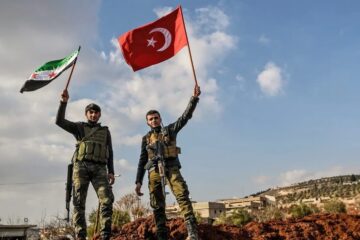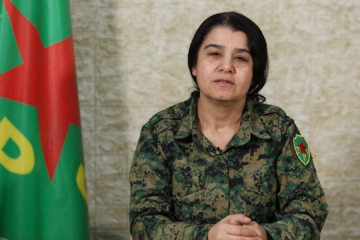1. Turn the tables: Why we are not where we have been summoned to be.
It is not primarily the state that attacks of its own accord, but we who attack, upon which the state attacks accordingly. Now, too, we are turning the tables and directing the attack at capitalism, the Swiss state and the Turkish state!
At first glance, one is inclined to say that in these proceedings the Swiss state is shirking the pressure of the Turkish state and dutifully carrying out what is dictated to it. It is in fact the Turkish state that has imposed this process. That is correct.
There are two very different states involved, very different forces. Nevertheless, they have the same basic interests: To cover with repression what opposes them with class struggle, resistance or revolutionary force.
The bourgeois Swiss state is not only an executive henchman, but is very much responsible for many profit-oriented filth in this world.
The attempts to criminalise practical international solidarity in Western Europe is a front of the Turkish state in its low intensity war against the Kurdish-Turkish left liberation movement. Correspondingly, the trial for the „Kill Erdogan“ banner, which will take place in Bern in January 2022, is also a case of similar pressure attempts by the Turkish state.
The pandemic crisis has hit the already existing capitalist crisis with full force. This is not only the case in Switzerland. Around the world, contradictions are coming to a head in a historic political as well as economic crisis. The expansion of instruments for preventive counterinsurgency – such as state security, police, military – by the ruling classes is only one expression of this.
As leftists, we should closely follow and understand the „fractures“ that are opening up, so that we can anticipate and adjust our revolutionary strategies accordingly.
2. What does it mean in the pandemic crisis?
Streets instead of isolation: Only those who are part of the social dynamics can really understand and analyse what is happening. This means taking the streets and being tangible instead of being forced into isolation. Appropriating new spaces to strengthen collective processes. We have to learn to adopt new ways and methods in this particular situation. Of course, always keeping in mind the solidarity and health protection of the people.
The bourgeois state is dominated by profit, competition and power. The dismantling and privatisation of the health system is a good example of this. Another example of this cynicism: on the one hand, the compulsion to vaccinate, on the other hand, people in precarious situations (like refugees) are crammed together, isolated from society and even more restricted in their rights.
The state delegitimises itself, demonstrates that the weakest can be sacrificed, and is then surprised when this cynicism allows reactionary and even fascist forces to sniff out the opportunity.
We assume that the bourgeois state with its capitalist principles and concepts of freedom cannot be in a position to get a grip on this crisis in any other way than what it is trying to do now: profit-oriented, authoritarian, class-dividing. The bourgeois concept of freedom contains and hails individualism as the highest value. But a pandemic crisis cannot be solved with this, on the contrary. The state very quickly reaches its limits, meets this individualism in an authoritarian way in the crisis, people develop anger and indignation, and take to the streets.
Our fundamental critique of the state is confirmed in the crisis, becomes even more visible and tangible. We do not trust a state that decrees measures from above in the interests of the economy and power.
If we want to build a society that protects everyone, we have to take it into our own hands. In socialism there are, among other things, very well values that include collective solidarity and responsibility – we see this for example in the social handling of the pandemic in Cuba. Collective, solidary responsibility is oriented towards the weakest link, just as the weakly positioned continents should be supported in solidarity by the richer ones in the centre.
3. Socialism or Barbarism
This includes, for example, deepening international solidarity with Rojava – not only in view of the current acute threat of a new war of aggression in north-east Syria by the Turkish military or the poison gas operations in northern Iraq, where the free mountains of the PKK guerrillas are located, but also in view of the importance of the revolutionary process in Rojava, which has been radiating worldwide for almost 10 years and inspiring the revolutionary left.
This includes tracking down and attacking those responsible for this war in every country, whether state or capital, whether war material production or whatever.
If we look at the big geo-strategic context with all its contradictions and warlike confrontations, and in turn look at the role of the developing reactionary fascist currents in it, then we realise without doubt that in the historical phase of „socialism or barbarism“, all revolutionary forces must necessarily position themselves in a more united and cohesive way. It is a question of putting unity at the centre and developing an international strategic strand that takes into account the objective conditions as well as subjective inconsistencies. In this strand, the revolutionary process in one’s own country can be dialectically related to those in Kurdistan, for example, so that it can be concretely reflected here as well.
An international anti-capitalist and anti-fascist front or networking as well as campaigns like #riseup4rojava or #fight4rojava are examples of this.
Let us stand together against the counter-revolutionary and belligerent attacks on everything that develops in this and other contexts. Let us unite to turn the tables and strengthen our international revolutionary processes!


